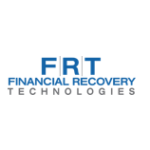FRT’s Fast Five: Week Ending March 12, 2021
Financial Recovery Technologies Fast Five provides you with the top news in shareholder class actions. Stay up-to-date on the latest developments in settled (U.S./Canada) claims filing opportunities, Antitrust settlements, Global Group Litigation matters and more. For more information, contact your Financial Recovery Technologies representative or email us.
1. Teva Investors Win Class Cert. in Securities Suit
A Connecticut federal court on Tuesday certified a class of Teva Pharmaceutical investors accusing the company of attributing its success to good business decisions when much of the good fortune was instead due to its participation in an allegedly sprawling generic drug price-fixing conspiracy. U.S. District Judge Stefan R. Underhill certified a class of investors that held certain shares or notes in Teva ahead of a May 2019 complaint from state enforcers accusing the company of being at the center of an industrywide price-fixing scheme. In his order, Judge Underhill also rejected a bid from Teva to exclude evidence from the investors’ expert, David I. Tabak, which the judge said was based on many of the same arguments made in opposing certification. Click here to read the full article (subscription may be required).
2. Australia: EY Targets Pitcher Partners in Slaters Class Action
Global accounting giant EY has alleged its national rival Pitcher Partners engaged in misleading and deceptive conduct and negligence in its 2015 audit work for Slater and Gordon before its near collapse. The case is the latest of several cross claims in the long-running class action over plaintiff law firm Slaters’ 2015 troubles, which left it on the brink of insolvency and allegedly lost investors about $250 million. The shareholders’ claim that Pitcher Partners wrongly signed off on financial statements of Slaters which inflated the law firm’s revenue by more than $130 million over the 2012 to 2015 financial years. The case builds on a growing trend of investors focusing their litigation efforts on the deep-pocketed advisers to collapsed companies, such as their auditors or lawyers, rather than the failed entities themselves. Click here to read the full article.
3. Australia: Government Warned on Watering-Down of Continuous Disclosure Laws
The proposed easing of continuous disclosure laws for listed companies is a heavy-handed attempt to prevent class actions and will fail to bring down the high cost of insurance for directors as hoped, different groups warn. The Coalition government has been working on permanently easing continuous disclosure rules for listed companies since mid-2020 to make it harder for disgruntled shareholders and class action lawyers to launch civil actions. Litigation funders and class action law firms oppose the changes, while business groups, including the Business Council of Australia and the Australian Institute of Company Directors (AICD) back the plan; the insurance industry, meantime, does not think the class action market for disclosure breaches will cool off as a result of the proposal. Click here to read the full article.
4. France: Ex-Shareholders Demand $1 Billion From Vivendi Universal
Shareholders from the U. S. and multiple countries took entertainment conglomerate Vivendi Universal to court in Paris on Tuesday to demand up to $1 billion in damages for allegedly hiding its massive debts and other financial troubles from investors 20 years ago. Vivendi — whose holdings currently include Universal Music Group, Gameloft video game producer and cable network Canal+ — was accused of providing fraudulent information to shareholders between 2000 and 2002 in the trial held Tuesday in the Paris commercial court. Click here to read the full article.
This survey is intended to give an overview of securities lawsuits against non-U.S. issuers in 2020. First, it analyzes the number of cases filed, including trends relating to location filed, types of companies that were targeted, and underlying claims. Next, it analyzes some dispositive decisions rendered in 2020 and early 2021 and how they impact the legal landscape of these types of claims. Finally, it sets forth issues and best practices non-U.S. issuers should consider to reduce the risk of being subject to such suits. Click here to read the full article.
Subscribe to FRT’s Monthly Newsletter
Financial Recovery Technologies’ Shareholder Litigation Fast Five provides you with the top news in shareholder class actions. This is your exclusive summary of the latest industry developments related to settled, group and antitrust actions and recovery opportunities. Click here to subscribe.
Learn More
To learn more about how FRT can help your firm maximize recoveries in shareholder class action settlements, contact us at learnmore@frtservices.com.
About FRT
SETTLED CLAIMS I PASSIVE GROUP I ANTITRUST I FUTURE CLAIMS I OPT-IN MONITORING I OPT-OUT MONITORING
Founded in 2008, Financial Recovery Technologies (FRT) is the leading technology-based services firm that helps the investment community identify eligibility, file claims and collect funds made available in securities and other class action settlements. Offering the most comprehensive range of claim filing and monitoring services available, we provide best-in-class eligibility analysis, disbursement auditing and client reporting, and deliver the highest level of accuracy, accountability, and transparency available. For more information, go to www.frtservices.com.
- Follow us on Twitter: @FRTServices
- Follow us on LinkedIn Financial Recovery Technologies
- Email us: learnmore@frtservices.com
This communication and the content found by following any link herein are being provided to you by Financial Recovery Technologies (FRT) for informational purposes only and do not constitute advice. All material presented herein is believed to be reliable but FRT makes no representation or warranty with respect to this communication or such content and expressly disclaims any implied warranty under law. Opinions expressed in this communication may change without prior notice. Firms should always seek legal and financial advice specific to their unique situation and objectives.





